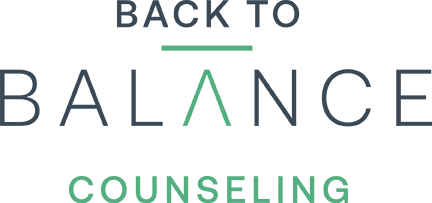Therapy for Health Anxiety
The headaches, the shakiness, the numbness, the tingling, the dizziness.
You replay the same narrative over and over in your head.
This has to be a brain tumor, MS, ALS, or a stroke, right? It’s gotta be SOMETHING.
Maybe you’ve been to the doctor (probably more than once), and tests have been run, and you’ve completed scans, and everything has come back clear. BUT, what if they’re missing something? WHAT IF the scan didn’t catch it?
Time to Google it! And while doing so, you find another disease that fits your symptoms.
Sound familiar?
Our team GETS IT. We can help.

Health Anxiety– which is also called illness anxiety disorder or hypochondriasis- refers to an excessive worry about becoming sick. This can happen regardless of whether you have symptoms indicating a particular illness. It can also occur in the presence of normal body sensations.
Health anxiety transcends ordinary health worries. It often coincides with other anxiety disorders, and it can significantly impact your mental health.
Symptoms of Health Anxiety
Health anxiety can emerge at any point in your life. Many people first experience symptoms in early or middle adulthood, but symptoms may worsen with age. Being regularly exposed to people having a serious or terminal illness can exacerbate the risk of having health anxiety.
Like all mental health disorders, health anxiety symptoms can range from being mildly uncomfortable to being significantly distressing.
Here are some of the common symptoms people experience:
- Intense fear of getting a certain disease or health issue
- Assuming certain physical sensations or mild symptoms indicate a serious issue
- Not experiencing relief even after negative test results or doctor appointments
- Repeatedly seeking reassurance/medical tests/resources from healthcare providers
- Avoiding certain situations, people, or places due to fear of exposure
- Seeking medical attention from multiple doctors and not trusting if providers state that you’re in good health
- Frequently Googling symptoms to try to diagnose potential illnesses or learn more about why a symptom exists
The intensity of specific symptoms may ebb and flow over time. But when they’re heightened, they create serious emotional distress, and it can be hard to feel present in everyday life.
In the case of somatic symptom disorder, a specific symptom (i.e. neck pain or stomach cramps) triggers health anxiety. You may, for instance, assume that a bad headache could indicate a brain tumor. The fear of having a severe illness spirals into an immense panic that can disrupt daily functioning.
Is Health Anxiety Always Bad?
Some health anxiety is rational, particularly if you have a family history of a disease or past experiences with medical scares. Furthermore, when it comes to your health, you are your own best advocate. It’s important to have a working relationship with your primary care doctor and share your concerns with them candidly.
But when the anxiety feels overwhelming- or it’s impacting other parts of your life- it may be a sign you need more support. The risk of brain cancer is always scary, but constant catastrophizing about bad things happening can feel just as debilitating.
Treating Health Anxiety
There isn’t a cure for health anxiety, but the right treatment can help you manage your symptoms and feel much better about your life.
In our approach, we generally blend a combination of cognitive-behavioral therapy with exposure therapy. This is an evidence-based method that targets illness preoccupation and also helps clients establish a greater sense of control over their well-being.
Some of our common therapeutic interventions include:
Identifying anxiety triggers: When it comes to treating an anxiety disorder, it’s important to establish a baseline of who, what, where, and when you most feel triggered. Knowing these patterns can help you better prepare yourself for potentially difficult situations.
Cognitive restructuring: Cognitive restructuring is a common intervention used in treating anxiety disorders. The working premise is that you can learn how to challenge and change the way you think. Your therapist might encourage you to ‘test the evidence’ behind a certain thought, reflect on alternative explanations for your physical symptoms, or instruct you to talk to yourself as if you might be talking to a good friend.
Behavioral stress management: Learning how to manage stressful situations is always an important part of treating anxiety. Avoidance is not your friend! In therapy, you will focus on replacing more maladaptive coping skills with healthy behaviors. This can include distress tolerance exercises, mindfulness, seeking positive social support, and being more accepting of anxious thoughts.
Exposure exercises: Repeated, safe exposure to uncomfortable situations can help create a desensitization effect. Exposure therapy refers to confronting feared triggers (working through a hierarchy) with a supportive mental health professional. For example, you may practice sitting with body sensations without looking them up online or calling your doctor right away. Exposure therapy is also used when health anxiety symptoms exist within the presentation of obsessive-compulsive disorder (OCD).
Relapse prevention: Treatment needs to also focus on safeguarding your future health. In therapy, you will learn about how to identify potential signs of health anxiety relapse. You will also review how you can cope with stress as it arises after treatment concludes. Most clients find that this helps them feel more empowered as they move through daily life.
Getting the Treatment and Support You Need in Hinsdale, IL
Most people experience fears about coming down with a serious illness. But people with health anxiety struggle to enjoy daily life and often feel preoccupied with their distressing worries.
At Back to Balance Counseling, we deeply understand the ins and outs of anxiety. Effective treatment starts with a safe therapeutic relationship. From there, we will explore the nature of your fears and discuss how you can better cope with your anxiety symptoms.
Contact us today to connect with one of our therapists!


